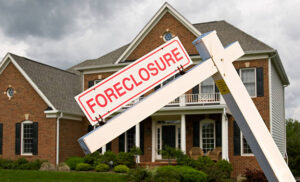Eviction
Massachusetts Bankruptcy Lawyers Anthony Bucacci and Robert Simonian (508)673-9500
Does Filing Bankruptcy Remove Evictions?
A bankruptcy case can discharge a debt you owe a landlord. And, if you file for bankruptcy before you’re evicted—or while an eviction suit is pending—you might be able to stop the eviction temporarily. But filing for bankruptcy won’t remove an eviction from your credit record. In fact, you can expect eviction information to get reported to sites that cater specifically to landlords.
Does Bankruptcy Clear Evictions and Discharge Back Rent?
It’s relatively common to owe a landlord money after being evicted from a rental property. Fortunately, since rent is an unsecured debt—just like a debt owed to a credit card company or medical provider—it will be discharged (forgiven) when you file a Chapter 7 bankruptcy or a Chapter 13 bankruptcy with a repayment plan.
Some jurisdictions have specialized courts that hear evictions and other disputes between renters and landlords. Some of these courts have the authority to issue judgments against renters for specific amounts relating to money owed for past due rent or damages. These judgment amounts get discharged in bankruptcy, but the eviction will still appear on your credit reports and background checks.
Keep in mind that not all debts get forgiven in bankruptcy. For instance, if you willfully and maliciously caused damage to the rental property, the landlord could file a lawsuit asking the bankruptcy court to prevent the discharge of that debt. Realistically, most landlords won’t go to that trouble unless the unit needed extensive repairs and the landlord has substantial proof that you knew that your actions would likely cause the damage.
Bankruptcy and Eviction: Can Bankruptcy Stop Eviction?
If you think you’re about to be evicted or if an eviction action is pending, the bankruptcy could affect how the eviction proceeds. If the court has issued a judgment for possession, you’ll be out of luck unless your state allows you to cure your past due rent after the court enters the judgment (a few allow this).
But you’ll have to act fast. You’ll only have thirty days to file paperwork and deposit your past due rent with the court.
If the suit hasn’t progressed that far, bankruptcy can stop the process at least temporarily. However, the landlord has the right to file a motion with the court asking the judge to lift the automatic stay so that the eviction case can continue forward. If granted, the landlord can start or resume the eviction suit.
Do Bankruptcies Clear Evictions from Credit Records?
A bankruptcy discharge won’t erase past negative credit information, including evictions. The landlord has the right to report payment problems and an eviction status to credit bureaus. The negative information will stay on a credit report for as long as seven years after the event. An eviction lawsuit (sometimes called an unlawful detainer action) can also be picked up and reported as a public record by the credit bureaus.
Background Checks and Renter Blacklists
In addition to credit reports, many landlords hire companies to perform background checks that are more extensive than a credit report. Background checks can uncover information about criminal history, including sex offender status.
Some companies, including the major credit bureaus, offer “renters screening reports,” often called blacklists, of people whose names appear in the records of housing courts nationwide.
Removing Inaccurate Information from Credit Records
Credit bureaus and companies that provide renters screening reports are subject to the provisions of the Fair Credit Reporting Act. If you’re denied rental housing because of a credit report or a renters screening report, you’re entitled to the name of the provider and a copy of the report itself.
The company issuing the report isn’t required to remove correct and verifiable information. But, you can dispute anything that’s inaccurate. If it’s unverifiable, the company must remove it from the report.
Source : totalbankruptcy.com





